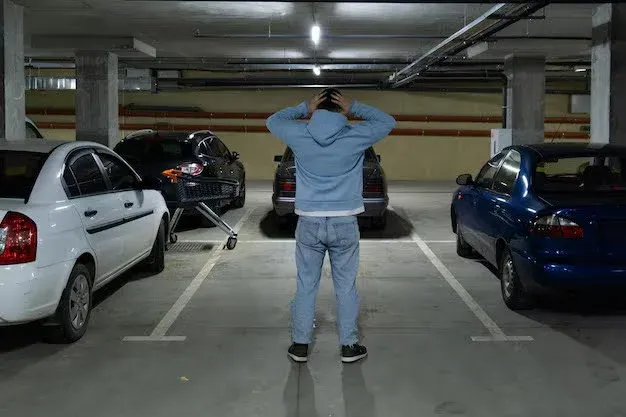
Does Auto Insurance Include Theft?
Discovering your vehicle missing when you come out is one of those situations that freezes you in place. Your mind runs wild with questions, and the first one is typically, "Am I covered?" The quick response: it depends on your policy.

Let's take a step-by-step look at how auto insurance treats theft, what you should be covered for, what to do if your car vanishes, and how to cover yourself before it ever gets that far.
Not All Insurance Covers Theft
If you're only carrying the minimum liability coverage that most states mandate your vehicle is not even covered in case of theft. That type of policy is intended to pay for damage or injury you might inflict on another person, not damage or loss to your own car. To be insured for theft, you must have comprehensive coverage.

That is an extra addition to your insurance policy that insures against unpredictable events that are not due to a collision such as fire, vandalism, weather destruction, and sure enough, theft.
So, when your car is stolen or burgled, comprehensive insurance helps. The catch: you have to have added it onto your policy before the incident. You cannot add it after the fact.
What if your car is stolen?
Then, if you have comprehensive insurance and your car is stolen, your insurer will do a few things before it sends you a check.
First, they will have you call the police to report the theft and provide them with a copy of the report. Secondly, there is usually a waiting period — typically 30 days — to determine if the automobile is recovered. In the meantime, the insurance company can investigate as well.
If the vehicle is not located, the insurance company will generally pay you the actual cash value (ACV) of your car. That is the approximated market value of your vehicle when stolen, minus your deductible.
For instance, if your vehicle was valued at $12,000 and you had a $1,000 deductible, you would receive $11,000. If the vehicle is recovered but in bad condition, the company may instead compensate for repairs, subject to the cost and extent of damage.
Are Items Inside the Car Covered?
This usually comes as a shock to individuals personal items pilfered from your car, such as phones, computers, backpacks, or even sunglasses, aren't included under your car insurance. Rather, those goods are included under your homeowners or tenants insurance if you possess it.

If you don't have either of those policies, you probably won't receive any compensation for anything stolen from within your vehicle.
Will A Theft Claim Increase My Premium?
Unfortunately, yes. Even if your vehicle is stolen through no fault of yours, making a claim can affect your future premiums. Insurance companies can take into account your ZIP code, the circumstances surrounding the theft, and your record of claims when establishing future premiums.
If you reside in a high crime region, you might already be paying more and a claim for theft will drive it higher. It's for this reason that some individuals opt not to make claims on minor losses, particularly if the refund is just about the deductible amount.
Lowering Your Risk of Car Theft
Insurance helps when things go wrong, but it’s always better if your car never goes missing in the first place. A few simple habits can significantly reduce your risk.

Always lock your car, even in your driveway. Try not to leave anything visible inside, especially electronics or bags that could tempt a thief. Park in well-lit areas, and if possible, near busy streets or security cameras.
Adding theft-deterrent devices that are visible, such as steering wheel locks or higher-level security systems, can also provide assistance. Certain insurance providers offer discounts for possessing theft prevention features, such as GPS tracking systems or immobilizers.
When Should You Add Comprehensive Coverage?
Full coverage is worth the most if your car is new, high-priced, or sits in zones where theft is commonplace. If your vehicle is financed or leased, your financier likely already mandates it.
But if your car is older or its market value is low, supplementing with comprehensive coverage may not be worthwhile. You could end up paying more in premiums than you'd receive in case the car was stolen.
It's worth doing the numbers. Check your car's value, subtract your deductible, and determine whether the possible payout would be worth the cost of coverage annually. And keep in mind, it's wise to review your policy annually as your car gets older or your residency changes.
Final Thoughts
Auto insurance can definitely pay for theft but only if you've elected to have comprehensive coverage in advance. Otherwise, you might be stuck paying out-of-pocket for a stolen or wrecked car. And even with coverage, it's worth knowing what's covered (and what isn't), how your deductible works, and what impact making a claim has on your rates.
If you're not certain what your existing policy covers, now is a good time to check. Don't wait until your vehicle goes missing to learn that there's a hole in your coverage.
Published on 8 Sept 2025
Author: Savvital Team